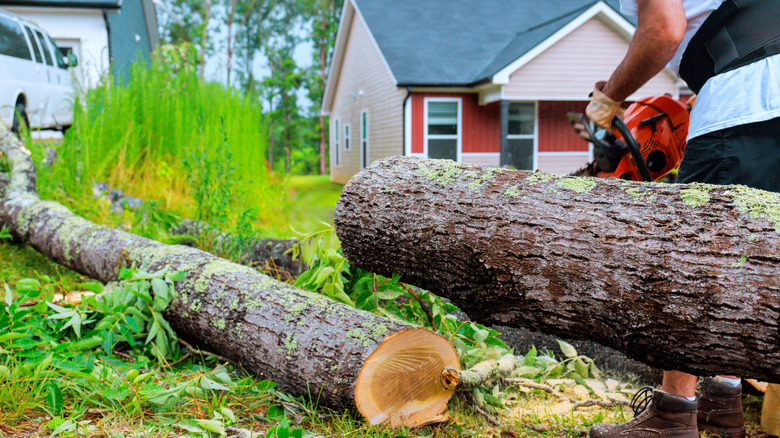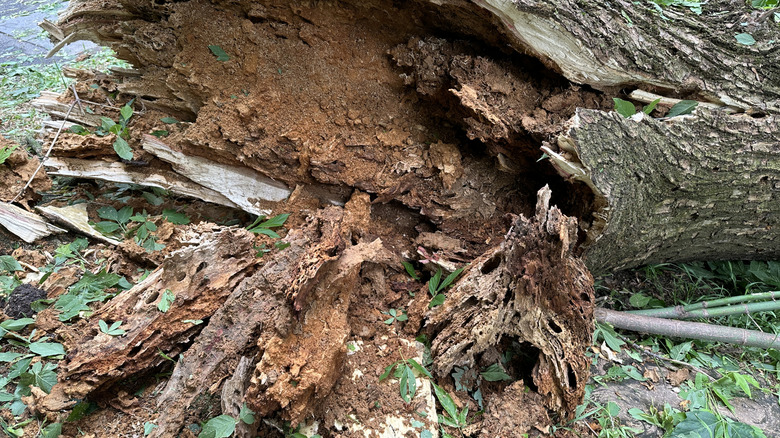What To Do If Your Tree Falls On Your Neighbor's Property
Sometimes life, quite literally, reminds us that we're not in control. A fierce gust of wind and tropical storms or hurricanes can topple even the sturdiest tree, which may land in a space it was never meant to occupy, like your neighbor's yard. Nature, in its beautiful unpredictability, doesn't ask for permission, and neither do its consequences. What follows is a question of who bears the repercussions. If your tree falls onto your neighbor's property due to natural forces, the law usually doesn't place the blame on you. What matters more than guilt is how gracefully you handle the aftermath.
Reach out to your neighbor with empathy, and let them know it's time to involve their insurance company, which is usually who is responsible for storm damage tree removal. The insurance company will also handle the cleanup if the fallen tree causes property damage. Encourage them to file a claim immediately and have them take photos of the fallen tree to share with their insurance company. It's fine for you to click a few as well, just to have a clear record of the situation. But if it fell without causing harm, the insurance company might not step in. In that case, you can always offer help to dispose of the fallen tree as a neighborly move. A thoughtful approach now would likely preserve the fragile neighborly goodwill that a fallen tree threatens to uproot.
Is a fallen tree ever your responsibility?
Not every fallen tree is nature's doing; sometimes, it's ours. For example, if you tried to cut down trees in your yard without professional help and things went sideways, that responsibility lands squarely on your shoulders. Trees tend to hold weight and unpredictable tension in their limbs. One wrong cut can make a DIY project far more costly than anticipated.
But responsibility doesn't end here. If your tree was diseased or visibly decaying — and you knew it — then ignoring it becomes an act of negligence. The same goes if the tree leaned dangerously close to your neighbor's property and they'd already warned you. Those warnings become evidence that you were aware of the risk and chose not to act.
When that happens, the law is rarely sympathetic. If you're found liable, your homeowner's insurance will step in to investigate, defend you if you're sued, and, if necessary, pay damages to your policy's limit. All in all, true responsibility begins with awareness and with how we care for what's in our charge before it becomes someone else's burden.

